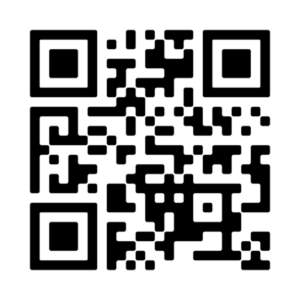You may have heard that journaling is good for mental health and fancy giving it a go, but don’t know how to start. Maybe the last time you wrote anything down, (apart from a shopping list) was years ago?
The great thing about journaling is there are no rules, you don’t need to be a writer, after all no one is going to read it but you. Even if you choose to share your journal online, no one expects perfect grammar and spelling. There are also many ways to write a journal, or you can create a picture journal.
The science based benefits of journaling show that expressive writing can help people with chronic illness such as asthma, fibromyalgia and irritable bowel syndrome. Other benefits of include reduced blood pressure and improvements with symptoms of depression and anxiety.
Journaling for Mental Health Beginners
You might feel like you don’t know how to write a journal, or be scared of writing. If your struggling I hope this post will help you get started and give you some ideas about a few different ways to keep a journal.
First of all lets clear up a few misconceptions, journaling does not have to be about what you did during the day. A journal has no dates, its not a diary and you don’t have to write in it every day. If you miss a day it’s not a problem, it is best however to chose a time in the day that you will add to your journal. This helps you to form a habit and even if you don’t journal, you are prompted to at least think about it.
Many people find journaling is easier at the end of the day, but you might find it easier in the morning. I find it easier to do bullet journaling when I go to bed and I also have an online journal that I write in the morning, after breakfast. Sticking to a time that works for you is all that matters.
Journaling Ideas
If you need a little help getting started here are three popular journaling ideas.
1. Self Care Journal
A self-care journal is simply writing down something you will do for yourself, that day. It could be spending 20 minutes in the bath or watching a film in bed. Writing down what you want to do helps your brain remember that it is important. It’s a bit like a friend reminding you that you are important.
2. Wellness Journal
Another way to journal is to write down how you feel both physically and mentally and set goals without deadlines. You might want to eat healthier, have more energy, or feel less anxious. A wellness journal can help you keep track of your progress and stay motivated.
3. Gratitude Journal
Simply write down three things that you are grateful for that day. It could be that the sun was out or your bus was on time! It doesn’t matter what you’re grateful for, just finding reasons to be grateful is what matters.
Five Benefits of Journaling
1. Helps you to prioritise your problems and understand your fears.
2. Tracking how you feel day-to-day can help you to recognise triggers that cause negative thoughts.
3. Makes it easier to form new perceptions about things that have happened.
4. Can help you to understand yourself and your feelings better.
5. Writing how you feel helps you to open up and recognise when you need help.
How to Start A Journal
Using a notebook can be easier at first and you can also add drawings. Try not to overthink it, just keep it simple, and don’t worry about your spelling or if it looks right. If you prefer to type, you can keep a digital journal.
Five Free Journal Apps
- Daybook is a bullet journal app which also has an audio recording option if you would prefer to speak and keep an audio journal.
- Daylio Journal for iPhone, Android allows you to record what your doing and how you feel. The fun bit about this app is it provides stats about your mood and shows you patterns to help you track your activities and how you feel.
- My Diary is just like a traditional diary but online. You can write your thoughts and add themes, stickers and images provided by the app.
- Journalate is a simple personal online journal with a high security level. This is great if you are concerned about anyone reading, or seeing what you are entering into your journal.
- LiveJournal is a little different as it provides an online community, with lots of smaller communities where you can interact with other people. You can keep your entries private or share them. The app makes it easy to put photos, music and videos into your journal, and you can mark your entries with tags to make it easier to find them in the future.
If you don’t like writing, Pininterest is also great for journaling, you can make your boards private and add notes to the images you save. Another great thing about Pininterest is it will give you ideas with images to chose from, that are based on your preferences. Or you could find and save quotes into an online journal, that reflect how you feel or inspire you.
Journaling is a scientifically proven way to improve your mental and physical health. However you decide to journal the key is to do if often and at the same time


